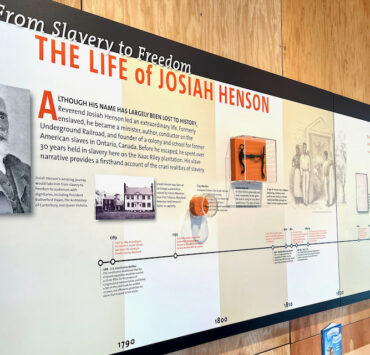While over 200 American cities have adopted police oversight measures, Tulsa is bogged down in its efforts at reform.
The most recent attempt to present reform measures to a vote of the people is the latest failure over the last few years. But if it were earnest in its attempts for reform, Tulsa’s leadership need look no further than Oklahoma City to find an example of how reforms can be successfully adopted. Oklahoma City has had its own examples of false starts. But it has successfully adopted 39 recommendations focused on police de-escalation, community engagement, and accountability.
An independent consultant (21CP Solutions) made the recommendations in eight public safety areas to the Law Enforcement Task Force. They were all subsequently adopted by the City Council on March 2.
The city retained the consultant to help guide the working group on criminal justice and police reform. Now the consultant will aid Oklahoma City’s political leadership with implementation. That step follows an assessment process during which, the consultant said, the “police department cooperated completely with us.”
The Law Enforcement Task Force was formed in August 2020 by Oklahoma City Mayor David Holt. It was “in response to community concerns about current law enforcement practices,” he wrote.
Holt added, “After much thought, I’m convinced the current level of community accountability must be improved.”
And similar to Tulsa and other communities, a central focus was on police use of force and accountability. The reforms are also aimed at the existing OKCPD Citizens Advisory Group, which had come under heavy criticism for its closed meetings and lack of action.
Oklahoma City and Tulsa are heavily restrained by Oklahoma law in police reform efforts.
In Oklahoma, Collective Bargaining Agreements (CBA) with the police supersede ordinances or even charter amendments.
This was clearly stated in a legal opinion from City Attorney David O’Meilia rendered to Tulsa Mayor G.T. Bynum dated April 21, 2020.
Further, management of the police department and negotiation of the CBA with the Fraternal Order of Police are administrative, not legislative, matters in Tulsa.
In the same opinion, the city attorney points out that the mayor shall “administer and enforce the terms and conditions of all contacts,” including the current “CBA contract with the City.” Unlike Oklahoma City, the Tulsa City Council is further limited in that labor “agreements are not required to be submitted to the City Council for approval,” as noted in that same opinion.
It is incumbent on Bynum to negotiate meaningful reforms into the police labor agreement or provide leadership for a collaborative effort. His office holds the power in Tulsa, and actions by ordinance or charter amendments are subordinate to the governing provisions of the Collective Bargaining Agreement per state law.
Discussing the process that led to the recommendations, the Oklahoma City consultant noted that “while union representatives were part of the task force, they were passive and did not take any position on any part of the recommendations.”
Nevertheless, the firm expressed hope that the union would ultimately see the recommendations as “reasonable and are designed to benefit the officers.”
In subsequent remarks to The Oklahoman, Oklahoma City’s Fraternal Order of Police President Mark Nelson said: “the FOP largely supports the 21CP recommendations.”
“It’s not a secret that some of these recommendations we don’t agree with,” Nelson explained. “But what we haven’t done and will not do is dig our heels and refuse to have discussions.”
Oklahoma City still faces many of the same legal challenges in implementing its adopted reforms. However, the mayor, council, and police department in Oklahoma City are united in their determination to make meaningful reform.
Whether Tulsa can get to this same point on police reforms remains to be seen.











